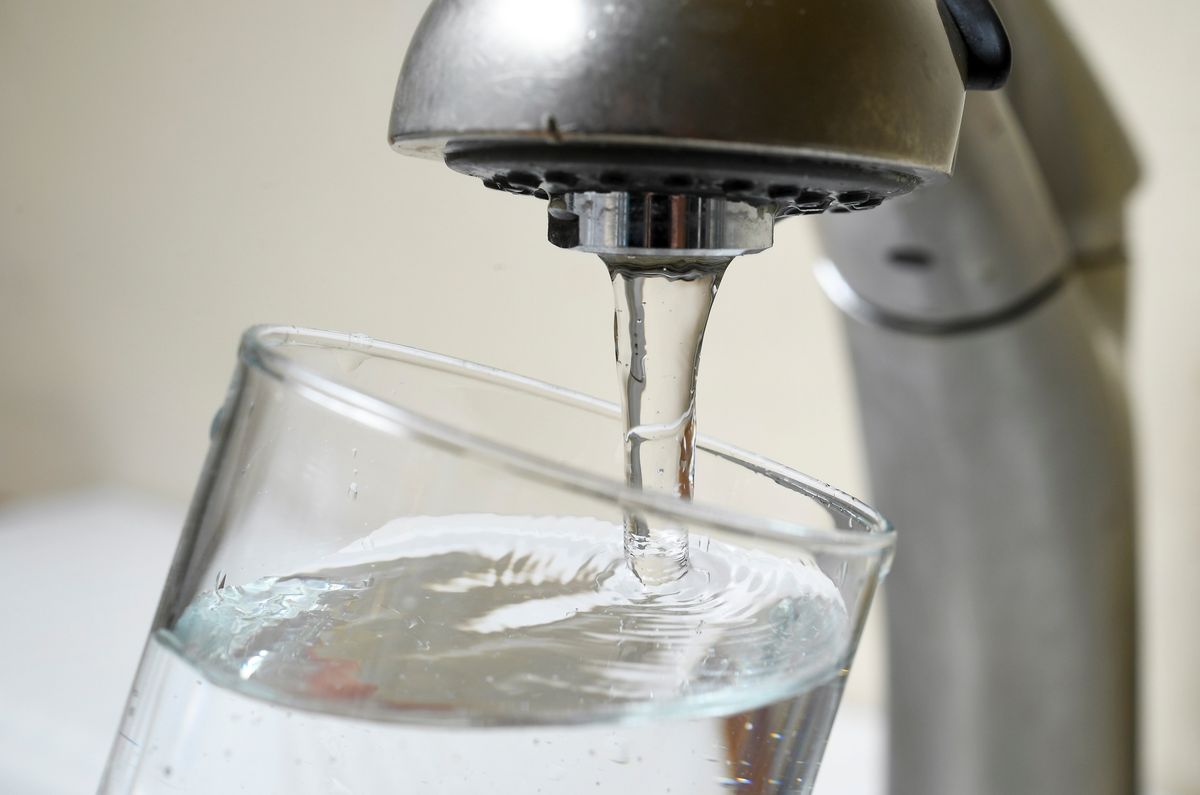I am obsessed with beverages. I typically have three-plus on my desk (or on my person) at any given time. From water and iced teas to juices, coffees, smoothies and protein shakes, I am truly awash in liquids. Water, though, has always been my number-one favorite. It is truly one of the most reliable constants.
I recall a family friend years and years ago joking that my family was keeping Poland Spring in business because we would so often be trotting around an inexplicable amount of the bottles when we were out and about. Conversely, a pet peeve of mine — not to yuck anybody's yums, of course — has always been people who make a point of how they "don't like" or "don't drink" water because it doesn't "taste good" or it "tastes like nothing."
There is, legitimately, no item on earth that quenches and refreshes like good ol' water — especially when you've eaten something especially heavy or you've accidentally eaten the equivalent of your body weight in candy.
In 2023, though, drinking water isn't all that simple. Even when eating out, the first question you get at many restaurants is "can I get you tap, sparkling or still?" For those who struggle with decision making (or Libras in general — a.k.a me), it can be challenging.
Furthermore, drinking water at home or when on the go is equally challenging: Is tap water safe where I live? Which brand of bottled should I choose? Should I buy one of those enormous stainless steel water bottles that strangely cost $80? How should I best go about hydrating myself properly?
Want more great food writing and recipes? Subscribe to Salon Food's newsletter, The Bite.
It isn't easy, so Salon Food chatted with nutritionists and dietitians Frances Largeman-Roth and Deborah Malkoff-Cohen to get the rundown on all things water.
Manhattan-based registered dietician and founder of Nutrition by DMC Deborah Malkoff-Cohen notes that the body is already made of 60% of water and that consuming water helps to regulate body temperature, aid in digestion, prevent constipation, improve skin health, aid in reproduction, deliver nutrients to tissues and tons more. Sorry to those who just "don't drink water," but it's truly a non-negotiable.
So, to start, what exactly is the difference between all of the different waters? Frances-Largeman Roth, registered dietitian nutritionist and the author of the cookbook Everyday Snack Tray, states that purified water is "free from microbes and chemicals. Water can be purified through reverse osmosis, distillation or iozonization," while plain tap water "has been treated with chlorine to kill anything harmful and often also has fluoride added to improve dental health."
Beyond those, Largeman-Roth explains that distilled water is "water that has been brought to the gas phase (steam) and then brought back to the liquid phase."
"This not only removes impurities, it also removes about 99.9% of the minerals in water." she said. "The flavor of distilled water is very bland because it doesn’t contain any calcium, sodium, magnesium or potassium." Meanwhile, per Malkoff-Cohen, spring water is naturally-filtered, in a way, "over several years, where rain seeps though the ground and is filtered by the earth through rocks and minerals."
Separately, nursery water is a type of distilled water plus other minerals added back in, which is best for baby formulas.
We need your help to stay independent
As far as alkaline, Largeman-Roth notes that it usually has a pH of about 8 or more, while regular water stays around 7. These waters can help to "bring down the acidity in your body," which could help with issues like acid reflux. However, it doesn't mean that necessarily helps you to hydrate any better. Malkoff-Cohen says the alkaline water push is merely hype and not necessary — more of a buzzword than anything else.
So, now that we understand the differences between the main waters on the market, how much should we be drinking?
While many have always heard that it's best to consume eight glasses of water per day, that doesn't take "athletes or people taking lots of medications into account," according to Largeman-Roth, since many medications, including laxatives, diuretics and Type 2 diabetes medications are often dehydrating.
Largeman-Roth also notes that bottled water is generally something to avoid. Not necessarily because of the water itself, but because of the impact that those plastic bottles have on our environment. She personally swears by a reasonably sized, 20- to-30 ounce bottle instead of a super-sized or uber-expensive one; those aren't really not necessary.
Still unsure how much you need? Maloff-Cohen notes that an easy way to determine your needs is by taking your weight in pounds and dividing it in half. That number is how many ounces of water you should be drinking in a day.
"Hydration is dependent on the amount of water consumed — not the type," she said.
As long as you're actually drinking water in the first place, it really doesn't matter if it's purified, spring, distilled, tap or spa water infused with a bevy of herbs, vegetables and fruits. Water is water! Drink enough of it and your body (and brain) will thank you.



Shares